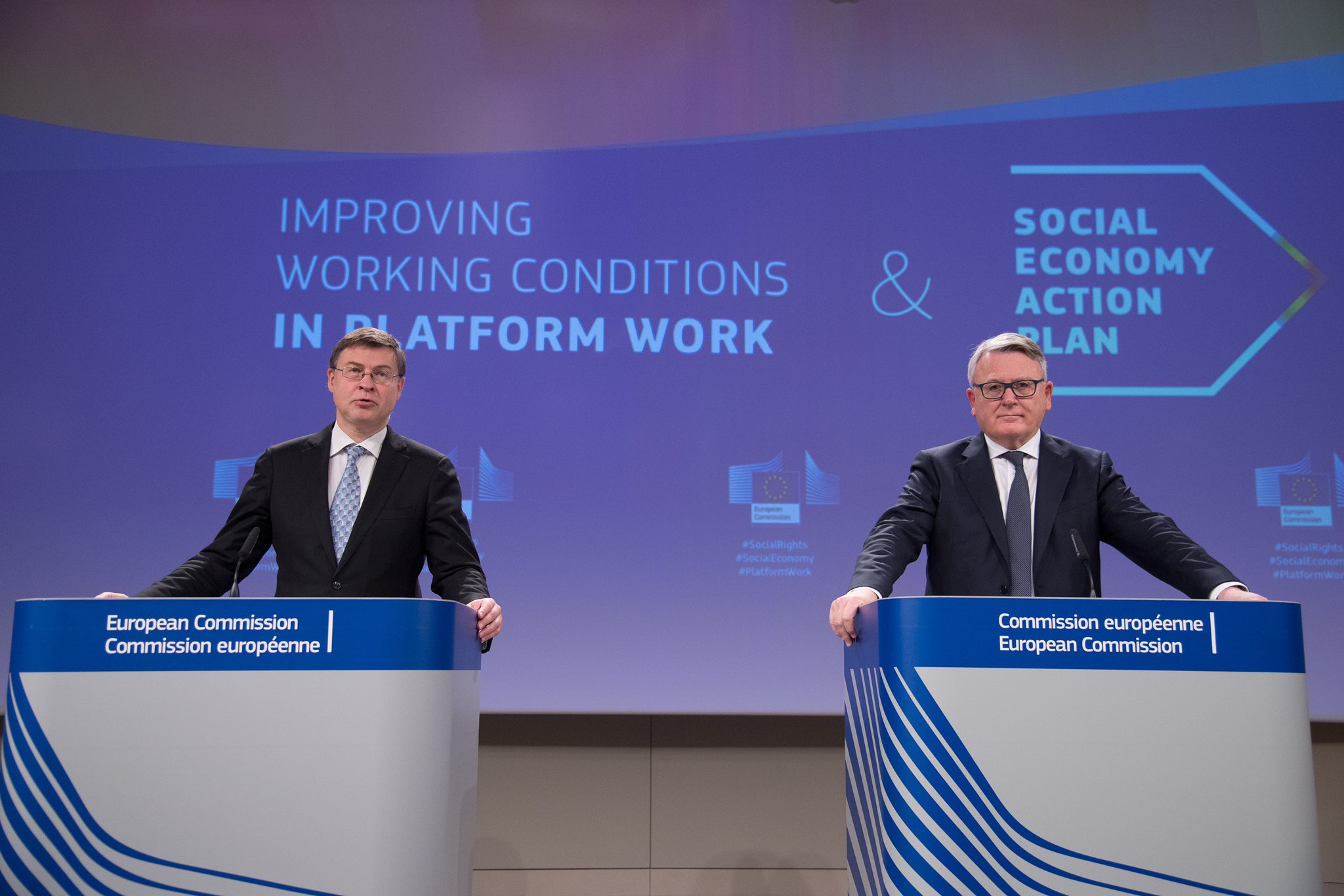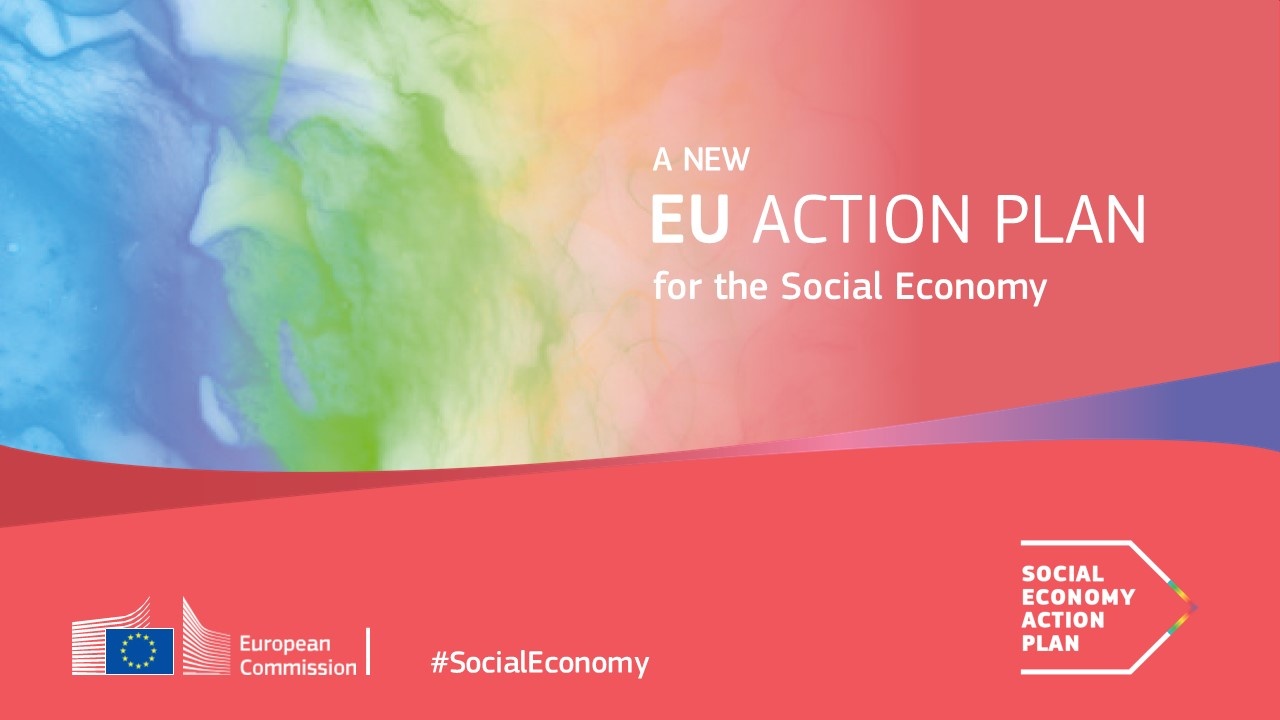
The European Commission has launched its Social Economy Action Plan, laying out Europe’s strategy to boost the social economy across the EU. CECOP welcomes this strong political initiative, much needed when Europe faces major challenges, such as COVID-19 resilience and recovery, fair and inclusive digital and green transition, rise of inequalities and work transformations, global challenges for sustainable economic and industrial development.
We particularly welcome the very inclusive and open process DG GROW and DG EMPL put in place over the last years to consult and involve stakeholders in the design of the Action Plan. In addition, the Action Plan has the merits of identifying the major barriers to the development and growth of the social economy, and of mainstreaming the social economy into different EU policies and initiatives. However, while the Action Plan announces measures for the 2021-2030 period, most of the key Commission presented initiatives are planned for 2022 and 2023. We regret that despite the goodwill, a long-term vision with clearly established targets is missing.
One of the important elements of the Action Plan we are welcoming is the inclusive definition of the social economy. The recognition of all sectors, including the industrial sector, and all types of cooperatives was fundamental to create a broad and impactful Action Plan.
“We are very pleased to welcome the Action Plan. Many of the issues on which worker and social cooperatives have been engaged for years are identified and therefore we welcome the Commission’s commitment to set up an ecosystem capable of developing the social economy. We particularly welcome the announced initiatives willing to make the taxation, public procurement and state aid rules more consistent with the needs of the social economy”
Giuseppe Guerini, CECOP President.
We hail the Commission’s recognition of the strong added value of the social economy in the care sector. Social cooperatives provide a major contribution to the sector, which was even amplified during the pandemic crisis management, and would need to become a centerpiece of the announced European Care Strategy. This would allow them fulfilling their mission in an effective an affordable manner, while providing quality work conditions.
CECOP welcomes the Action Plan call for specific financial and non-financial support for worker buyouts of closing enterprises. Indeed, we are glad that workers buyouts are back high on the EU agenda. These mechanisms help to retain jobs and ensure continuity of viable economic activities, but their potential remains still untapped. CECOP will be happy to develop together with the Commission concrete support measures in that field. In addition, we invite the Commission to conduct in-depth studies on the obstacles for worker buyouts and business transfers to employees in different Member States.
“The Action Plan provides an important impetus toward the growth and modernization of our cooperatives and will allow them to better embrace challenges they are facing, such as the green and digital transitions. We particularly welcome the support provided for workers buyouts trough InvestEU program. The conservation of the existing enterprises and their conversion into sustainable business models is essential for local development and job maintenance in our territories”
Francesca Montalti, Vice-President of CECOP, and member of the EU Industrial Forum.
The Action Plan also recognizes platform cooperatives as key actors for the development of innovative and socially inclusive digital business solutions. We hope this recognition will have a positive impact on the implementation of the EU Directive on Platform Work.
Among the other measures announced, we welcome the members states’ guidance on state aid and taxation frameworks for social economy entities. It’s essential for national fiscal policies and taxation systems to recognize the general interest function of social economy enterprises and provide them with adequate treatment.
We also hail the launch of new financial products under the InvestEU program and its higher expected multiplier effect, and the Commission’s will to improve the tailored supply of funding for the various stages of the enterprise life cycles. Private financing can be an important support provided that it does not interfere with cooperative governance principles. Thereupon, we ask the Commission to make sure that representatives of social economy financial institutions are represented in the InvestEU Committee.
The dual green and digital transition, and rising competition in the labour markets increase the need for life-long learning and well-trained workers and management in cooperative enterprises. Setting up of a skills partnership for the social economy under the Pact for Skills, as announced in the Action Plan, is thus essential to support workers re and up-skilling. Furthermore, special attention needs to be paid to the development of governance and managerial skills, especially for newly created worker cooperatives, providing broad skillsets that allow cooperatives to grow in their specific situations, including resulting of business transfers to employees and worker buyouts.
We are also satisfied with the actions foreseen to attract social economy entrepreneurs in rural areas, but support should also be provided to social economy enterprises already established in remote and rural areas, especially SMEs, facing challenges such as scaling-up, digital transition or attraction of qualified workers.
“In CECOP, we have been committed for long time toward youth involvement in cooperatives, so we welcome the establishment of the Youth Entrepreneurship Policy Academy. Our cooperatives will certainly be ready to collaborate for the success of this initiative and to contribute to the European competence centers for social innovation. We also greatly appreciate the introduction of innovative financial tools, together with adequate taxonomy”
Giuseppe Guerini, CECOP President.
CECOP also commits to contribute to joint actions for the transition pathway for the “Proximity and social economy” industrial ecosystem process, in order to boost the resilience and accelerate the green and digital transition of this industrial ecosystem, in parallel to its involvement in the Industrial Forum.
The action plan was developed in cooperation with social economy stakeholders, and CECOP commits to cooperate and involve its members toward its implementation. The yearly assessment of the implementation is welcomed but we also ask the Commission to set up long term targeted objectives to be achieved by 2030. Members states commitment will be crucial in this process, and the proposal for a Council Recommendation on developing social economy framework conditions is an important step forward. Cooperatives in industry and services can certainly contribute to reshape the post-COVID economy and contribute to a fairer ecological, economic and social transformation but they need to be supported by strong political commitment from EU institutions and member states.








 Employment & Social Inclusion
Employment & Social Inclusion 

